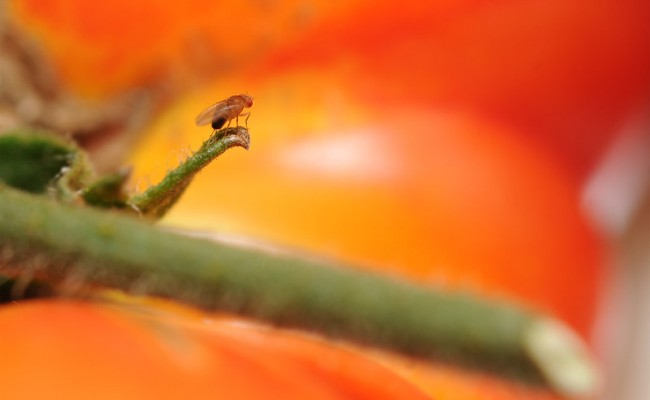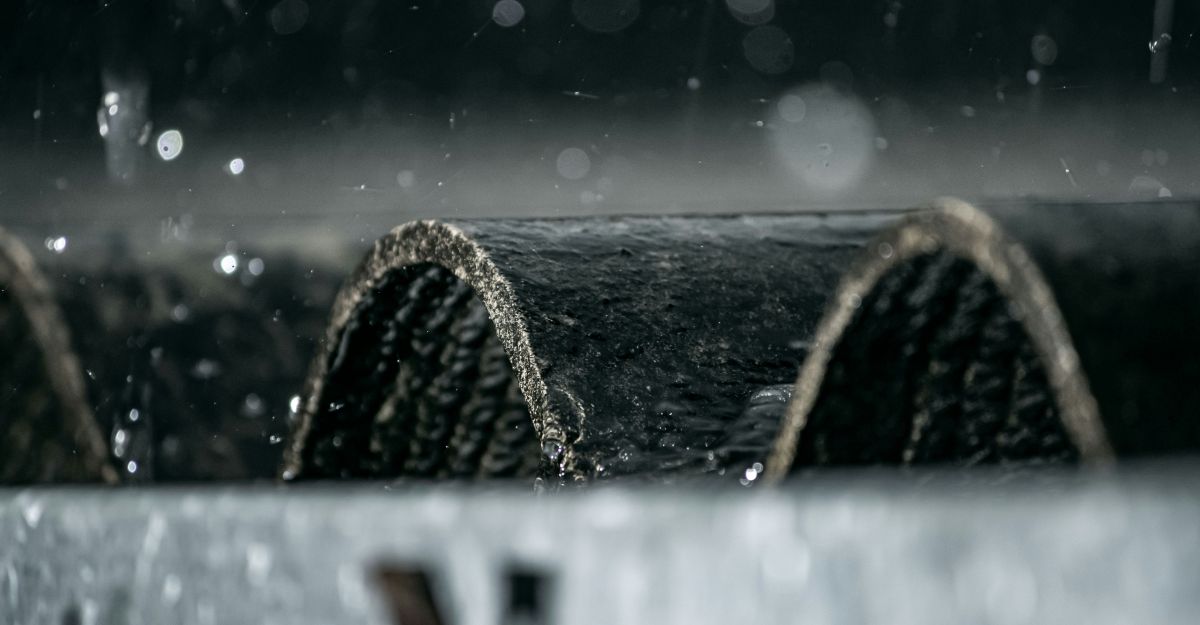Afterwards, a counsellor came to school to follow us around. Her name was Klara. Our headmaster introduced her to our grade at assembly and told us why she was here, then at lunch she zeroed in on our table and came and plopped herself down, right next to me. I thought about messing with her, saying that I’d once strung Max along for months, pretending I was into him till I finally told him he was a loser, a weirdo, not worth my time. I thought about feeding all that to her, just because something like this hadn’t happened before.
But I said, ‘I guess I knew him. He lent me some spinach for a recipe I did.’
‘Sorry? Spinach?’ Klara said.
‘Like, we had to bring our ingredients for Home Ec. It was a veggie slice or something, and if you didn’t bring all your ingredients you couldn’t cook and you had to sit at a desk and write. He saw I was pissed off that I’d forgotten the spinach and he yanked off half of his and gave it to me. Said his mum bought him a huge bunch. I remember that. He said, She wants me to learn how to cook.’
‘When was this?’
‘Ages ago. Grade eight, I guess.’
My boyfriend, Nick, leant across the picnic table and clarified things for this woman. ‘Bridie’s not saying she and Max were best friends.’
I nodded at Klara. ‘Yeah. I’m not saying I knew him,’ I said. ‘I dunno. That’s just what I remember.’
Our school was running an art prize for the first time. My teacher, Mrs Eames, had recently come over from St Ita’s and kept going on about how they offered a cash award each year and put on a show for all the parents. The idea was to put up paintings on the library walls, push desks together and sit the sculptures on top. Wine and nuts and whatever for all the parents she was sure would come. She was trying really hard to make us excited. I didn’t usually have it in me to match people’s excitement, but I guess I felt sorry for her. She probably still wished she was at St Ita’s. God knows what she’d done to get us instead.
‘Go back to St Ita’s, then,’ Nick said, I guess to her, but through me, while we walked home one afternoon from school past the big storage garage. Kids made up stories about the types of things people kept in there, dead bodies and apocalyptic amounts of porn, things like that. Someone’s brother worked there one summer, and he always made jokes about having to air the place out when it got too humid, and the freaky shit he got to poke through. But for his story to work, you’d have to believe they handed out garage keys to any old teenager doing summer casual to look through people’s private business.
‘She’s just trying to make things interesting,’ I said. I found that I did this often, with Nick, changed my tune. He brought out something bitchy in me.
‘You should enter,’ Nick said, surprising me. He reached into his backpack and pulled out two cigarettes, then his lighter from his pocket. He lit mine first. Gestures like this were high on my mother’s wishlist for my sisters and me. Not necessarily the cigarette part, but having a boyfriend do nice things for you, in a way that others might see. That was important.
I had a week left till the deadline. ‘Maybe I will,’ I said, agreeing with him for once. ‘Maybe I’ll ask Richie when we get to yours, see if he has any inspiration.’
Nick, scoffing, reached for my hand. ‘As if he knows what’s going on,’ he said. I watched Nick flick the end of his cigarette away from my leg. We stood at an intersection a few blocks from his house, waiting for the cars to pass. I pulled my hand away from his and got out my phone to start googling ideas for Mrs Eames’ class.
‘You shouldn’t talk about your brother like that,’ I said.
‘Why not?’ He looked the other way, into the traffic.
‘It’s mean. It’s cruel.’
‘Excuse me, I can talk about my family how I like. Richie knows he’s slow.’
I stepped off the kerb. ‘You just feel lucky it isn’t you.’
I was a step ahead. ‘Pardon?’ he said.
My heart quickened. I stared at my phone and kept walking. Once, I had called Max a horrible name. Klara the counsellor left before I could tell her that. ‘You’re always guilty because you’re grateful you’re not like Richie.’
‘I don’t like it when you speak that way,’ Nick said, softening, when we got safely to the other side. ‘You’re not that person. Don’t be so tough.’ He brought his hand up to my hair. He rubbed my back between my shoulder blades.
Later that night, after Nick was asleep, I crawled out of his bed and went across the hallway to his brother’s room. I didn’t go in or anything. I held my hand against the door like they do in the movies. In the end I was surprised how nice that felt, how much I convinced myself I could sense Richie and understand him through the membrane of my palm. Their mother was talking on the phone in the kitchen downstairs. She never slept. Right at the beginning, when Nick and I started going out, I mentioned that I heard her long fingernails tapping on the countertop early one morning – I was just making conversation – and she went red and apologised all through breakfast. She loved having me over. It made Nick embarrassed how much she loved it.
I went to the bathroom, peed so I wouldn’t get a UTI, sponged between my legs with a washer that I tossed into the boys’ laundry basket. Then I went back to Nick and tried to wrap myself up tight against his back. But he moved and left me on the other side of the bed, feeling stranded.
*
I was willful about Nick and him telling me what to do and say. The next night, at a party Nick didn’t want to go to, I met James. He was twenty-nine and I could tell he liked me straight away. It didn’t take long: we spoke for about an hour. James’ job was as a paramedic, he was new to town, just back from a trip to Thailand, and so on. I got us both drinks, then we walked to the corner and went through some stranger’s fence so we were in their yard, hidden by bushes. I felt his hands in my hair and around my back, under my shirt. James was very used to all this. None of it took him by surprise, just in case I thought for a moment that I was special. He wanted to fuck but in the end I told him no and he was pretty good about it, considering. On the way back to the party, I noticed orange peel in the gutter and a baby’s nappy, wrapped up tight, pale like a ball of dough.
I’d seen the artist’s work where he built a big glass box then put a dish of sugar and water in with some flies. Above them he hung a bug zapper. He called it ‘A Thousand Years’. I liked that title, because of how it sounded, but who knows why he called it that. Did he think the flies – even with the zapper – would last that long in there? Or, without the zapper, they’d survive on and on and on? Did he love the idea of people wondering about the title, and being confused by it, something a weirdo would want? Either way, I worked on my project all week. I avoided Nick mostly. I called it ‘Forty-five minutes’, which is the length of a single art period at our school.
After class, I got Mrs Eames to stay back so I could show her before the prize night. I’d made my version in an old fish tank the size of a shoebox. She touched it with her elegant hands while I looked down at my chewed up fingernails. I pressed a bloodied finger to my lips and sucked it.
She stepped towards me. ‘You look just like your sisters,’ Mrs Eames said, ‘but you’re nothing like them, are you?’
Mrs Eames knew what I had done, knew that I’d copied that man’s work.
‘I don’t know,’ I said. I felt myself about to cry. My sister Yvonne wouldn’t have done to Nick what I did. Neither would my sister Charlotte. Temptations like that – if they did feel them, they would never act on them. My mother wouldn’t have done what I did. She had a knack for caring for people, children and animals, in a quiet way, no fanfare. Anyone else would think she wasn’t as smart as other people, as clever as my sisters and me, but it takes a lot to be that nice and make people around you feel good, always.
‘Fine,’ Mrs Eames said, ‘Want to explain your piece to me?’
‘Fruit flies are fascinating,’ I said. I’d stopped myself from crying. I looked around at the aprons on their hooks, spattered with paint. And the coils of wire, and the slabs of clay wrapped in plastic.
‘In what way?’
‘They multiply at rates that are interesting for scientists who research evolution.’
‘And this is all your own work? Your own ideas?’ She leant against the whiteboard, studying me.
I waited. Then I shook my head slowly. Mrs Eames began to nod. For a bit I was shaking my head at the same time she was nodding.
Max’s house was on stilts. I reached the verandah up a single set of stairs that led straight from the barrel-shaped letterbox at the footpath. The front of the house had yellow walls and fat, round, green pillars. I knocked on the front door. There was a shiny garden gnome underneath the front window, and a hat upside-down beside the mat. Welcome, the mat still said. A woman in overalls and fluffy blonde hair set in two messy bunches on the side of her head pulled the door open wide in one swift movement.
I kept waiting to see some resemblance. Max had thick, curly black hair, huge blue eyes, pretty lashes. I stared at the poor woman for definitely too long, not seeing any resemblance, or any possibility that a woman this age had once had a teenager for a son.
Finally, I said, ‘I thought this was Max’s house. My name’s Bridie. We went to school together.’
‘Oh.’ Her face, too, made the shape of an ‘o’, as round as a frying pan. ‘I’m his mum’s friend. She moved away.’
‘Oh.’
‘I’m going to help sell this house for her – know anyone?’
‘No.’
‘I was kidding,’ she said. She narrowed her eyes at me. ‘Kids don’t get jokes anymore, do they.’
That’s not a joke, lady, I thought. But instead I shrugged.
‘Here,’ she said. ‘I’m Maggie. Wanna sit?’
She pointed to a long, narrow wooden bench beneath one of the windows overlooking the verandah. She stretched out her legs on the seat. She tugged at her socks, then started unlacing her sneakers. There wasn’t much room left for me, so I dropped my backpack at my feet and took up just one end.
‘What can I help you with, Bridie?’
‘I won some money.’
‘That’s cool. How’d you do that?’
I told Maggie about Mrs Eames and the fruit flies. She wanted to know what some of the other entries looked like. I wondered how old Maggie was. Thirty? Forty? She told me congratulations. She sounded like she meant it.
‘Thanks.’
‘What are you going to do with the cash?’ she asked.
I inhaled deeply. ‘I was going to give it to Max’s mum.’
These temptations, why couldn’t I stop them? Misery coursed through me. Mrs Eames hadn’t failed me, since it was for an award and not for classwork, but she disqualified me from the show. And, of course, she now thought less of me. And Maggie might very well say yes, okay, great, hand it over. And then what? What would I do, having not at all won the money?
Maggie stopped what she was doing with her socks and shoes, and she stared at me, hands held up. ‘Look, I understand if you’re sad. What happened was awful. But I used to work with Max’s mother, that’s all. I said I’d help her with the house for a bit.’
‘I’m serious about the money. I’ve never known anyone who died. Maybe at school we weren’t all that nice to him. I’m trying to make things up to people.’
‘That’s very sweet of you.’ She swung her legs to the floor and smiled at me for the first time. ‘But maybe you should go.’
‘I’m not trolling you,’ I said. ‘I’ve been thinking about Max. Mostly about his family, how they won’t get any peace from now on.’
Maggie cocked her head and studied me like Mrs Eames had. Even Klara, it felt like she spent more time watching me and me alone than Nick or any of the others that day.
My words rushed out. ‘But also: I led him on. I kind of pretended I liked him, and wanted to sleep with him, but then I rejected him. I was pretty mean.’
‘Oh, love.’ She said this tenderly. ‘We all did bad things at school.’
If she didn’t have kids, Maggie would have made a really nice mother. She stood and ran her hands down the front of her overalls, brushing at nothing that I could see.
‘It was good of you to come round,’ she said. ‘Don’t worry about his mum. Okay?’
*
Nick’s mother, she sits me down in her fancy kitchen, she wants to tell me something. I seize up: she must have figured out the real me, and I’ll be exposed in the bright, sharp light reflected off the benchtop. But what she says is that being young is wonderful. She says adults are always looking forwards or backwards to before they had kids, or into the future when their kids are all grown up and they’re back to being free. So, to counter this, Nick’s mother is really trying to work on being in the moment, with her two beautiful boys and the ages they are right now before they head off into the big, wide world. I stop myself from asking what she thinks Richie will end up doing, because she looks so radiant, and so hopeful, and so loving towards me. Cubes of ice clink in her glass. Do I want one? she asks. I do. We have a cold white wine each. I wish I had a cigarette to put between my fingertips for this ten minutes while Nick gets the washing off the line for his mother. We are two women sitting legs crossed with our bodies towards each other, speaking with our knees.
Read the rest of Overland 236
If you appreciate Overland’s support of new writers, buy this issue




